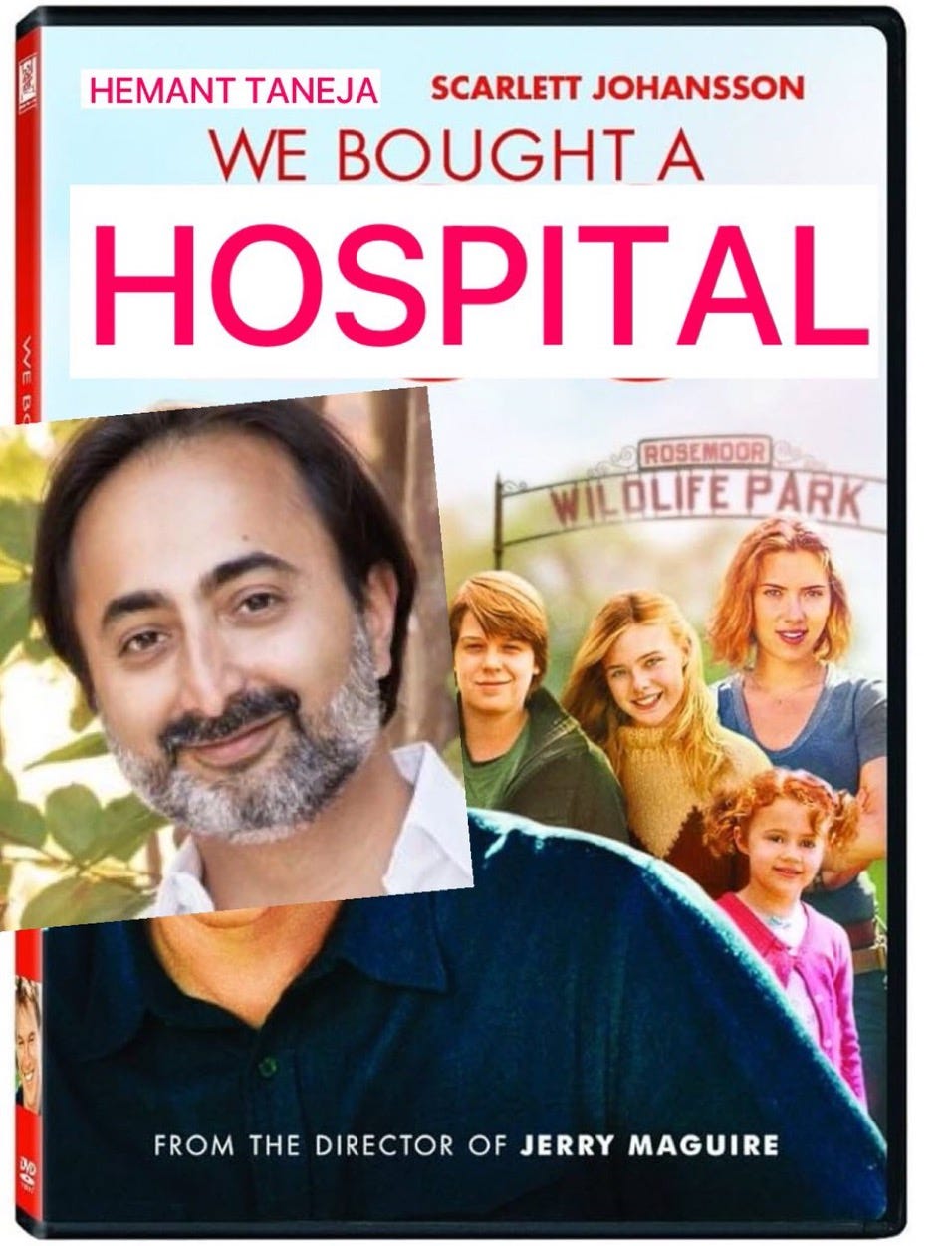BREAKING: General Catalyst Decides VC Isn't Enough—Wants It All
As I predicted, like any ambitious mafia boss, Hemant Taneja will never be satisfied with just a "territorial agreement."
Welcome to AI Health Uncut, a brutally honest newsletter on AI, innovation, and the state of the healthcare market. If you’d like to sign up to receive issues over email, you can do so here.
Axios just reported that General Catalyst has reached out to several large organizations about buying a stake in its holding company, as it continues to expand beyond its venture capital roots.
So What Does It Mean?
Well, there’s no other way to put it. This is bad news for healthcare. Disgusting news, in fact.
Let me explain.
We all know General Catalyst and other VC funds have done an abysmal job returning money to their investors—putting it mildly. In plain English, it’s been a disaster, especially in healthcare, General Catalyst’s so-called specialty.
According to PitchBook, the last vintage where VC funds’ median TVPI (Total Value to Paid-In Capital) exceeded 1x was 2015 or 2016. Think about that. Imagine investing in 2016, watching the S&P and Nasdaq soar, while you’re stuck sitting on a pile of VC funds that can’t even give you a distribution—let alone a return on your money.
It’s been rough as an LP. Unfortunately, I know that firsthand.
Empire Building: Why 2% Beats 20%, Hedge Funds, and the Moral Hazard
There are two key economic theories at play here:
1️⃣ Empire Building
In plain English, if you’re a GP (general partner) in a venture capital fund and couldn’t pick winners if your life depended on it—looking at you, General Catalyst and billionaire CEO Hemant Taneja—what do you do? You build an empire.
Because, as VC bros love to remind us, once you reach a certain size (and yes, size does matter):
2% is bigger than 20%
Translation: If you suck at picking innovative companies, your incentive shifts from generating returns to amassing assets. The bigger the asset base, the bigger the 2% management fee.
Ain’t capitalism awesome?
This isn’t a new trick. Hemant borrowed it straight from the hedge fund playbook. About 20 years ago, the world realized that most hedge funds were just glorified S&P 500 trackers—no alpha (skill) whatsoever. Just beta.
So what did hedge funds do? Enter AQR, the poster child of this shift. They said, “Alright, the gig is up—we’ll just become mutual funds.” Why? Because the mutual fund structure opens up massive distribution channels, letting them rake in 1%-2% in fees without worrying about actually serving investors. And when you’re managing $50-$100B, that 1%-2% ain’t chump change.
2️⃣ Moral Hazard
A related economic concept is moral hazard—when the agent (e.g., General Catalyst) acts in its own interest, knowing the principal (i.e., LPs - limited partners) either won’t punish them or the punishment will be insignificant compared to the financial upside of acting selfishly.
And that, my friends, is how the game is played…
“We Bought a Hospital We Couldn’t Afford”: General Catalyst Becomes General Hospital
Remember that story from a year ago when Hemant and General Catalyst bought a hospital with money they didn’t have?
Back then, people insisted I was wrong when I said General Catalyst was running the private equity playbook. I hope it’s clearer now.
Oh, and Hemant blocked me on LinkedIn. Guess the truth stings.
Hemant and Hippocratic AI
You’ll see a deep connection between Hemant and Hippocratic AI in my upcoming Hippocratic AI investigation, now set for release next week. It’s taking longer than I expected—my apologies—but I promise it’ll be worth the wait.
Why Should We Care?
Mediocre managers with great VC connections are wreaking havoc on healthcare. Like that evil octopus in the picture above, they extend their tentacles across the industry, spreading mediocrity at scale.
My top priority—and one of the main reasons I launched this Substack—is to expose the reckless, outright absurd stupid that are dragging healthcare down. My goal is to help build an asset allocation model that serves healthcare itself, not billionaires like Hemant Taneja, who got rich by making the system worse than when he found it.
👉👉👉👉👉 Hi! My name is Sergei Polevikov. I’m an AI researcher and a healthcare AI startup founder. In my newsletter ‘AI Health Uncut,’ I combine my knowledge of AI models with my unique skills in analyzing the financial health of digital health companies. Why “Uncut”? Because I never sugarcoat or filter the hard truth. I don’t play games, I don’t work for anyone, and therefore, with your support, I produce the most original, the most unbiased, the most unapologetic research in AI, innovation, and healthcare. Thank you for your support of my work. You’re part of a vibrant community of healthcare AI enthusiasts! Your engagement matters. 🙏🙏🙏🙏🙏






